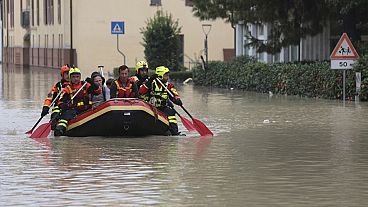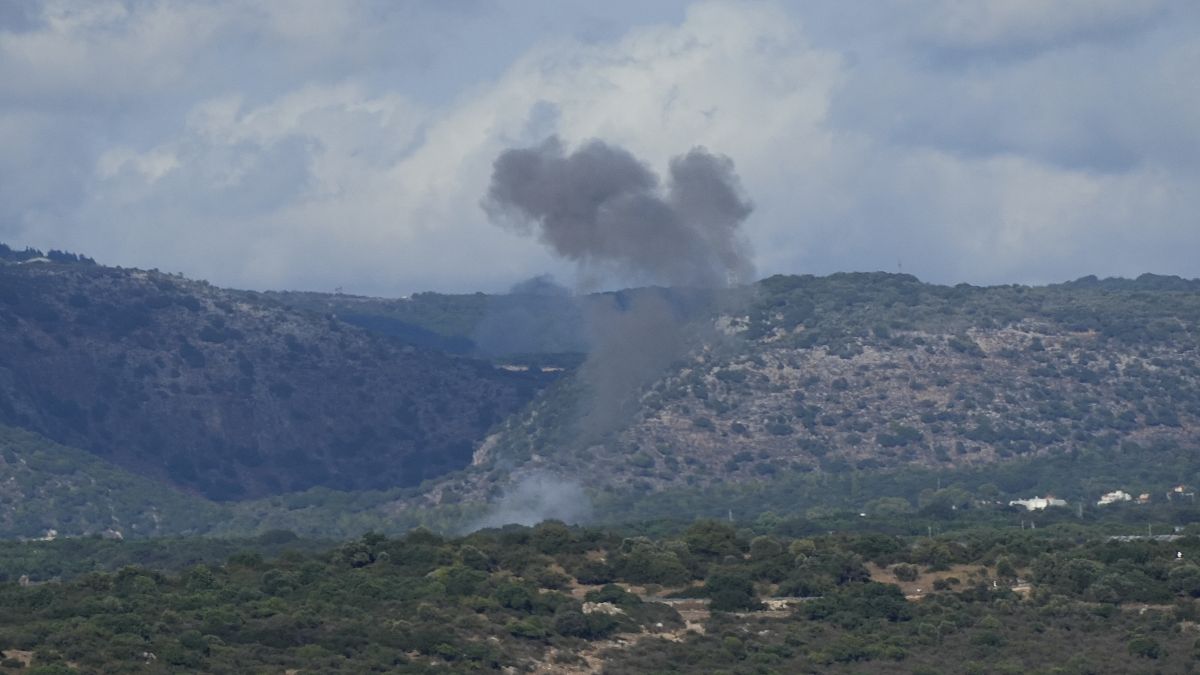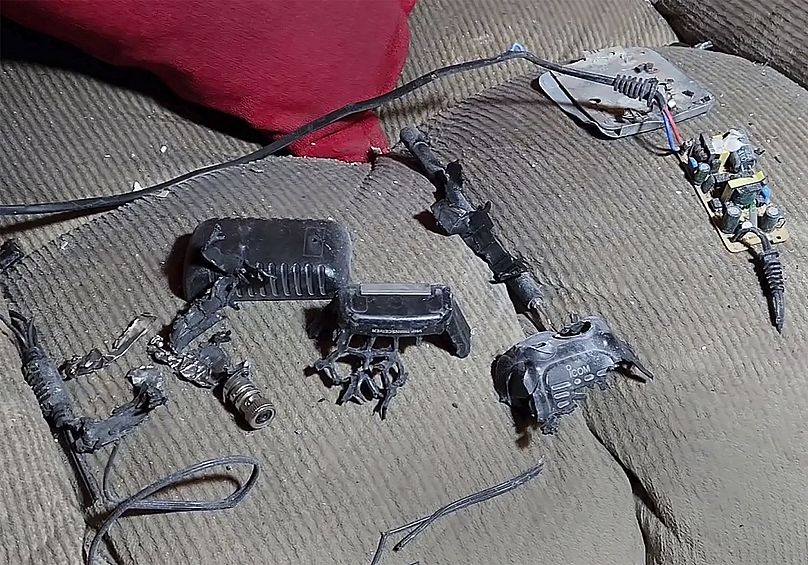Meanwhile in Beirut, Hezbollah leader Hassan Nasrallah vowed "just punishment" for the two-day walkie-talkie and pager attacks, which killed more than 30, wounded thousands and was widely believed to be carried out by Israel.
Israel has launched a fresh wave of strikes on southern Lebanon in an attempt to target and destroy Hezbollah's infrastructure, according to the Israel Defence Forces (IDF).
The attack follows a similar assault by Hezbollah, which launched a new barrage of drone strikes into northern Israel on Thursday.
In Beirut, Israel's fighter jets broke the sound barrier, flying low above the Lebanese capital as Hezbollah's leader, Hassan Nasrallah, began a televised speech for the first time since the targeted explosions of pagers and walkie-talkies across the country, calling them a “severe blow” that crossed a “red line”.
Nasrallah vowed "just punishment" for the two-day attacks, which killed more than 30, wounded thousands and was widely believed to be carried out by Israel.
Addressing Israel's Prime Minister Benjamin Netanyahu, he said: "You will not be able to return the people of the north to the north … No military escalation, no killings, no assassinations and no all-out war can return (Israeli) residents to the border."
The device explosions appeared to be the culmination of a months-long operation by Israel to target as many Hezbollah members as possible all at once.
Over two days, pagers and walkie-talkies used by Hezbollah detonated, wounding some fighters but also maiming civilians connected to the group’s social branches and killing at least two children.
Although Israel has not officially claimed responsibility for the attacks, a former senior official in Israel’s Mossad intelligence agency described the operation as "successful".
"At the end of the day, it's a combination of three elements that work perfectly, which is the intelligence on the one hand, technology on the other, and the operational capabilities," Sima Shine, senior researcher at the Institute for National Security Studies think tank, said in an interview.
"This combination of the three made this event, this operation, successful," Shine added.
"And I think what is important to mention is that it was directed on Hezbollah operatives, not on any civilians. It might happen that one or two civilians were close and were injured. But the purpose of the operation was directed against operatives of Hezbollah."
The Israeli government has now called it a "new era" of war aimed at ending the Iranian-backed group’s cross-border fire to allow tens of thousands of Israelis to return to homes near the border.
Meanwhile, Bulgarian authorities have rejected claims that exploding devices have been shipped through the territory of the Balkan country.
It came in response to media publications alleging that a company registered in Bulgaria had supplied the Lebanese organization Hezbollah with exploding devices.













